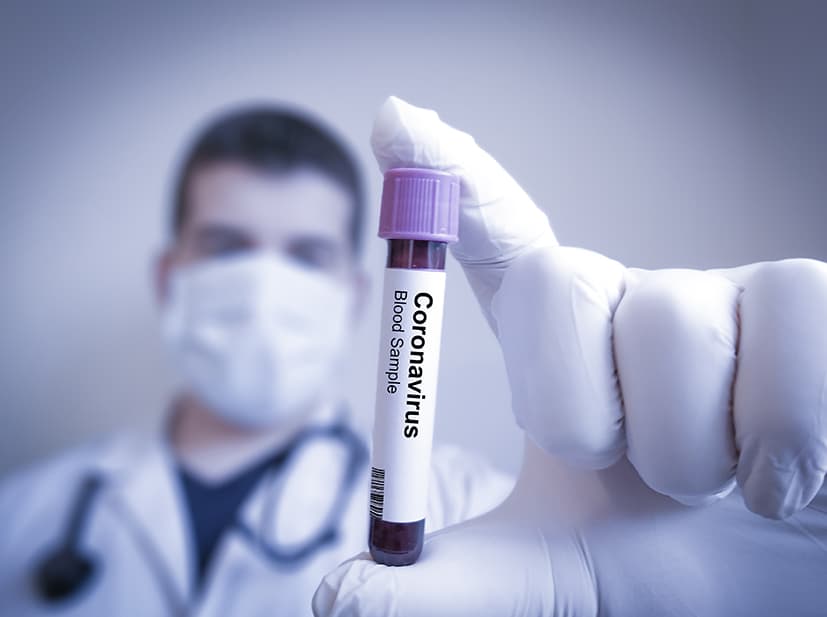Cantex Pharmaceuticals, a clinical-stage pharmaceutical company, has secured a global license from Harvard University’s Office of Technology Development (OTD) to further develop Cantex’s drug azeliragon into a treatment for inflammatory lung diseases including COVID-19.
This new global license from Harvard bolsters Cantex’s existing robust azeliragon composition of matter patent and other intellectual property portfolio covering azeliragon, a well-tolerated once-a-day pill.
Studies performed on the drug at the Wyss Institute in a Human Lung Alveolus Chip demonstrated that azeliragon significantly blocks the production of inflammation-causing cytokines including IL-6, IL-8, and IP-10 as well as RANTES, a key proinflammatory cytokine produced by virus-infected lung cells, following viral infection.
Based on these promising results in combination with extensive supporting literature from other studies, Cantex plans to conduct a Phase 2 clinical trial to test azeliragon in hospitalized patients with severe COVID-19, as well as Phase 2 trials in other pulmonary inflammatory diseases including chronic obstructive pulmonary disease (COPD), steroid refractory asthma, and sarcoidosis. The drug has previously been tested for Alzheimer’s disease and diabetic nephropathy, where it showed high levels of safety in Phase 3 clinical trials involving over 2,000 patients.
Cantex also plans to initiate Phase 2 clinical trials exploring the therapeutic effect of azeliragon in pancreatic and breast cancers, where RAGE has been implicated in disease progression as well as in complications of treatment.
Stephen Marcus, M.D., CEO of Cantex, said: “Monoclonal antibodies have made an important contribution to the treatment of COVID-19. However, their efficacy is limited, and they can be challenging to manufacture, store, distribute and administer. Thanks to the great work of the scientists at the Wyss Institute, we now have compelling evidence that Cantex’s drug azeliragon may have the potential to prevent severe COVID-19 illness in the form of a well-tolerated, once-a-day pill.
“We’re excited to have the opportunity to conduct clinical trials of azeliragon for this disease, seeking to bring this groundbreaking therapy to patients to prevent the life-threatening inflammation that is the major cause of hospitalization and death from COVID-19 infection.”
Although further studies would be needed to confirm the results, the combination of azeliragon’s established track record of safety in human clinical trials and the Wyss Institute’s data showing the effect of azeliragon in virus-associated inflammation in human lung tissue prompted Cantex to license the Wyss Institute’s technology from Harvard to expand its ongoing clinical development of azeliragon as a treatment for cancer and its associated complications.
“When someone is hospitalized with respiratory symptoms due to COVID-19, the infection can, over several days, progress to the point where prolonged hospitalization or admission to an intensive care unit is required, or where uncontrolled lung inflammation causes death. In further developing azeliragon for COVID-19 and inflammatory lung diseases, Cantex seeks to interrupt this process, accelerate recovery, and prevent life-threatening complications with a convenient, well-tolerated, once-daily oral anti-inflammatory medication. Moreover, since persistent symptoms of COVID-19 infection known as ‘long COVID’ are believed to be caused by persistent inflammation, it is possible that extending a patient’s course of the drug over several weeks may also prevent long COVID,” said Dr. Marcus.
Following FDA submissions that include data from the Wyss’ Organ Chips, Cantex is planning to initiate a Phase 2 clinical trial in patients hospitalized with severe COVID later this year.
“We are eager to see this potentially lifesaving therapy enter clinical trials at a rapid pace, as it may help stem the tide of the ongoing global pandemic, and address other inflammatory diseases as well. I am also especially grateful to our Business Development team for finding the perfect commercialization partner in Cantex,” said Ingber, who is also the Judah Folkman Professor of Vascular Biology at Harvard Medical School and Boston Children’s Hospital, and Professor of Bioengineering at the Harvard John A. Paulson School of Engineering and Applied Sciences.


